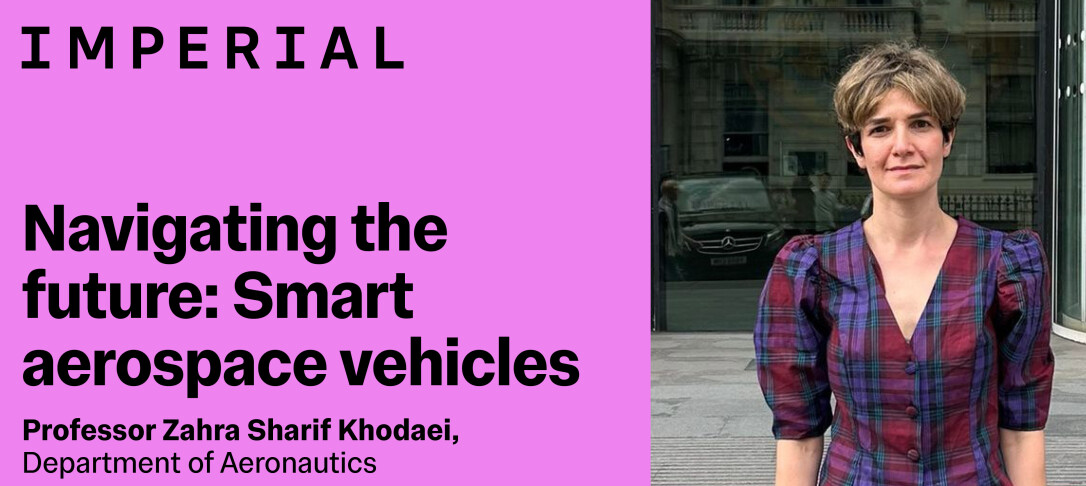
Join us for Professor Zahra Sharif Khodaei’s Imperial Inaugural online or in person.
There is no need to register to attend so please be sure to use the add to calendar button.
We look forward to seeing you on Wednesday 13 November!
Summary
The advancement of the next generation of aerospace vehicles, ranging from electrical aircraft to space launchers, requires an enhanced safety and efficiency vital for both their design and operation. For instance, the main concern of urban air vehicles is the safety of flight above residential areas.
The integration of permanent sensors within the structure, facilitates real time remote monitoring of their health as well as their operation, which is the aim of Structural Health Monitoring (SHM). A SHM system enables cognitive abilities to monitor, adapt, and respond to real-time operational challenges, which can facilitate the adoption of novel and sustainable vehicle design.
Zahra Sharif Khodaei is Professor in Aerospace Structural Durability & Health Monitoring at Imperial College London where she has worked on the integration of remote non-contact SHM system within the design, manufacturing and operation of air vehicles, focusing on the paradigm shift towards smart and intelligent aerospace structures In her inaugural lecture, Zahra will demonstrate the implementation of condition-based maintenance and health management for smart structures, utilising sensor data alongside advanced computational models, artificial intelligence, machine learning, and cutting-edge sensor technologies. These elements play a crucial role in the integration of intelligent systems with Structural Health Monitoring.
Biography
Zahra Sharif Khodaei is a Professor in Aerospace structural durability and health monitoring. She became the first female professor in the Department of Aeronautics, Imperial College London in 2022. She is the co-founder of the Structural Integrity and Health Monitoring (SI&HM) group which has pioneered a range of software and hardware developments in the field of Structural Health Monitoring (SHM), researching in passive (impact detection & classification) and active sensing (damage detection & characterization) of smart structures. She has developed different SHM systems using piezoelectric, fibre optic and novel printed sensors, as well as technologies and methodologies for diagnosis & prognosis of composite structures under environmental and operational conditions. The developments have been within several collaborative projects involving UK industries and academia, EU projects and more recently ESA for space application. She is a member of the steering committee of CleanSky II and a Fellow of Royal Aeronautical society and Women’s Engineering Society. In her inaugural lecture she will introduce the concept of smart structures for future aerospace vehicles, making them safer and more sustainable.


